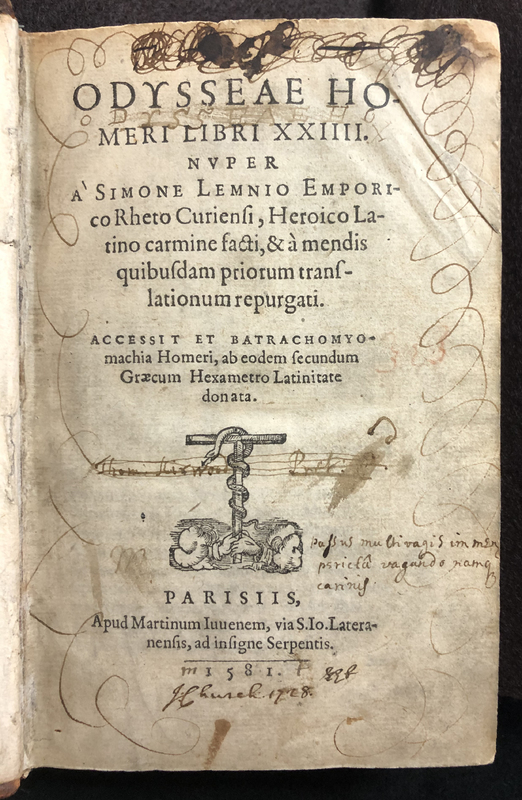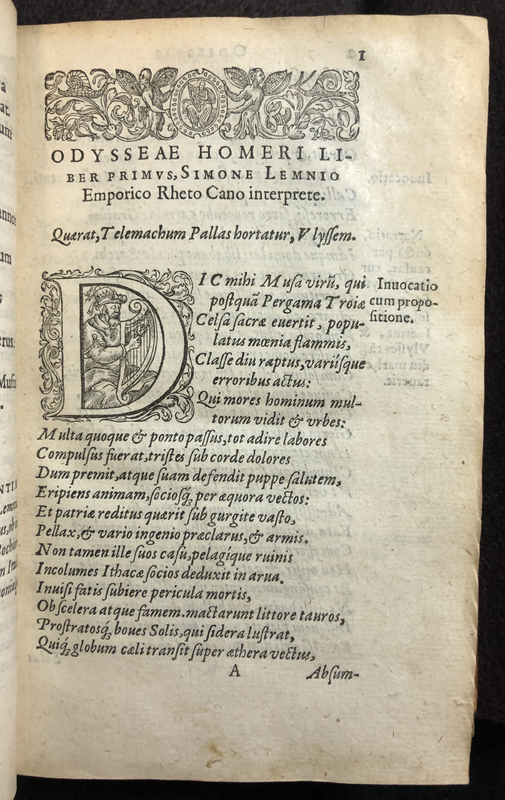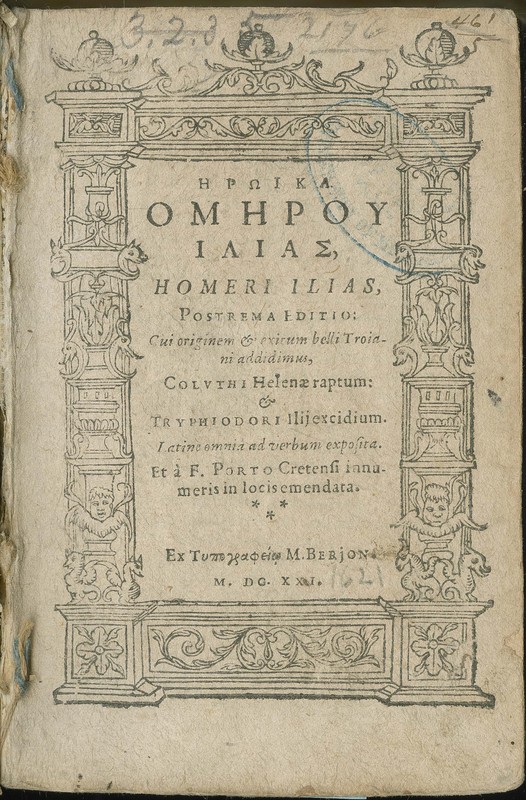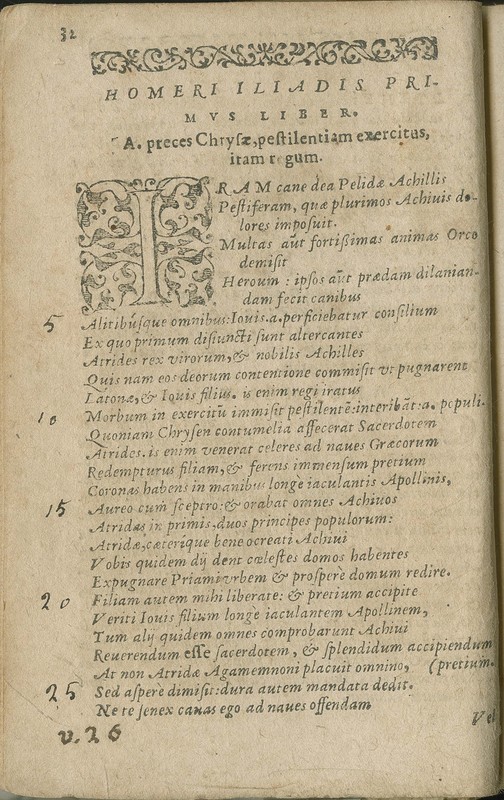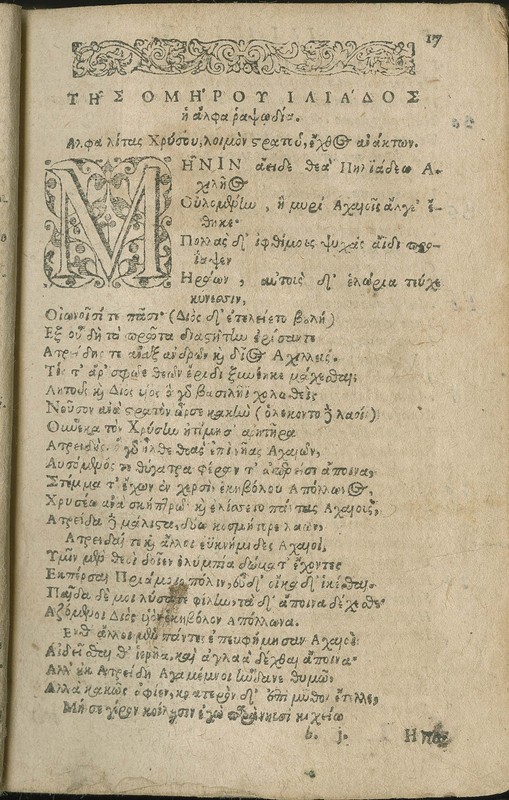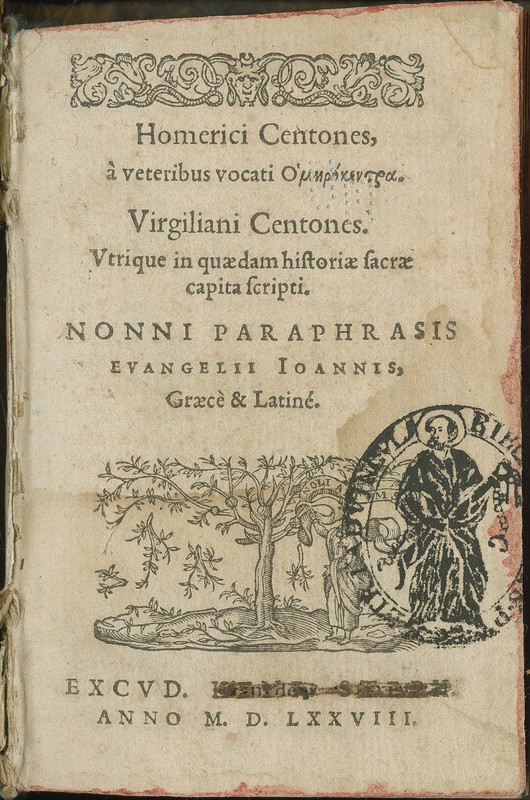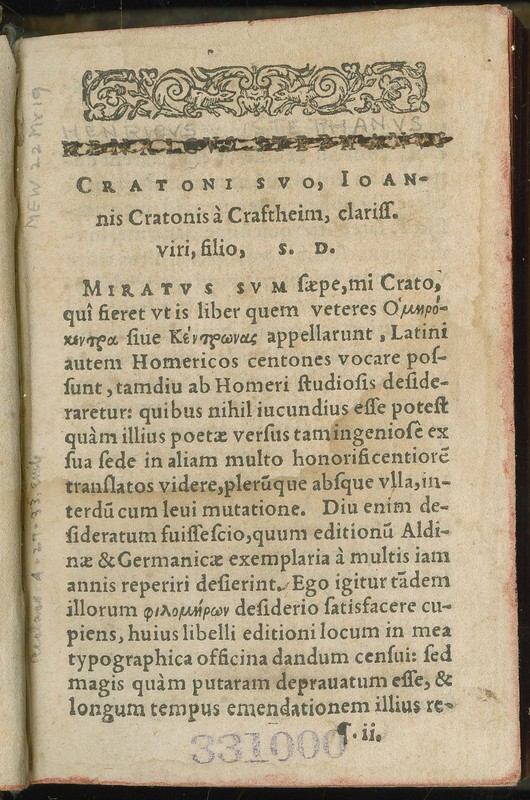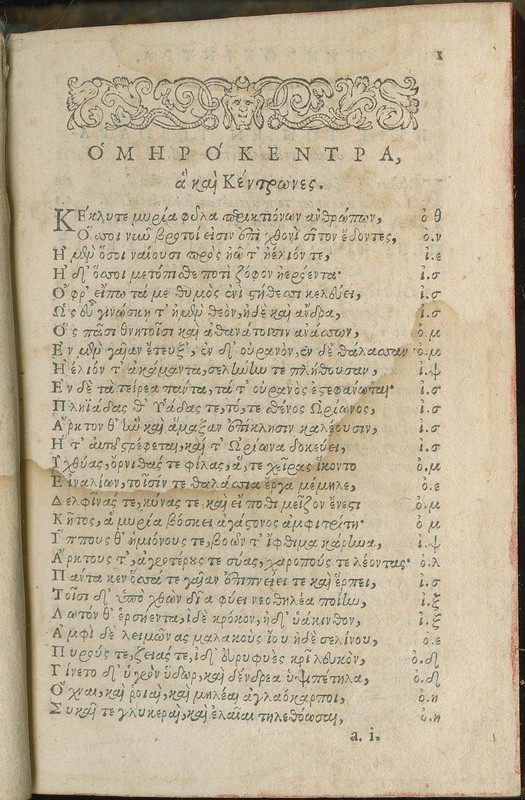The Latin Homer
After Leontius Pilatus completed his Latin line-by-line translation of both poems in 1362, other Latin versions of Homer ensued in the next decades. For instance, in 1444, Lorenzo Valla completed his Latin prose versions of the first 17 books of the Iliad, and Raffaele Maffei published a version of the Odyssey, partially in verse, in 1510.
The Odyssey
The version of Maffei became particularly popular because it was reprinted along with other Latin translations of the Homeric text by Lorenzo Valla, Aldus Manutius, and others in Antwerp in 1528. While most of these translations were literal versions, lacking any literary embellishments, others, such as this edition of Simone Lemnius that was first published in 1549, were not translations but poetical exercises that greatly departed from the original Greek.
The Iliad
This volume consists of a Greek and Latin edition of the Iliad, followed by two additional poems that narrate the events leading to the Trojan War and the destruction of Troy itself. They are “The Rape of Helen,” a short epic poem in 392 verses, by the sixth-century, Greek poet Colluthus, and “The Capture of Ilium,” consisting of 691 verses, composed by Triphiodorus, a Greek epic poet from the second half of the third century C.E. But the uniqueness of this particular copy of the Iliad lies in the fact that an extraordinary document was inserted between the last page and back cover. It is an original letter that a U-M alumnus, Capt. William Wirt Wheeler of the 6th Michigan Volunteers, wrote to his former professor of Greek, James Robinson Boise, on 29 September 1862. While in a camp near New Orleans, Wheeler wrote that he “was able to save from the flames of a gentleman’s library a copy of the Odyssea and another of the Iliad” and that he was sending these two volumes to Professor Boise as a “very small tribute of respectful remembrance from a former pupil who had need of all your indulgence blundering through his Greek at college.” Professor Boise eventually presented these two copies to the U-M Library.
The Christian Homer
This title consists of three separate works representing an extraordinarily evidence of a Christian reading, or even misreading, of both the Homeric text and its legacy. In the mid-fifth century C.E., a very strange poem called a “Homeric Cento” was written by Eudocia Augusta, the wife of the Byzantine emperor Theodosius II. The term cento means “stitching” in the sense of making a patchwork quilt, so “cento” refers to an epic poem made up of verses borrowed from the Iliad and Odyssey. The newly-created narrative was based on the Bible and designed to be recited before audiences. For example, to express the sorrow of the Virgin Mary upon the death of her son, material is used from the Iliad, books 22 and 24, which describes Priam’s emotions after the death of his son, Hector. The second part includes Virgilian centos written by the fourth-century poetess, Proba Falconia, who was greatly admired throughout the Middle Ages. The third part consists of Nonno’s paraphrase of the Gospel of John in Greek with a facing Latin translation.
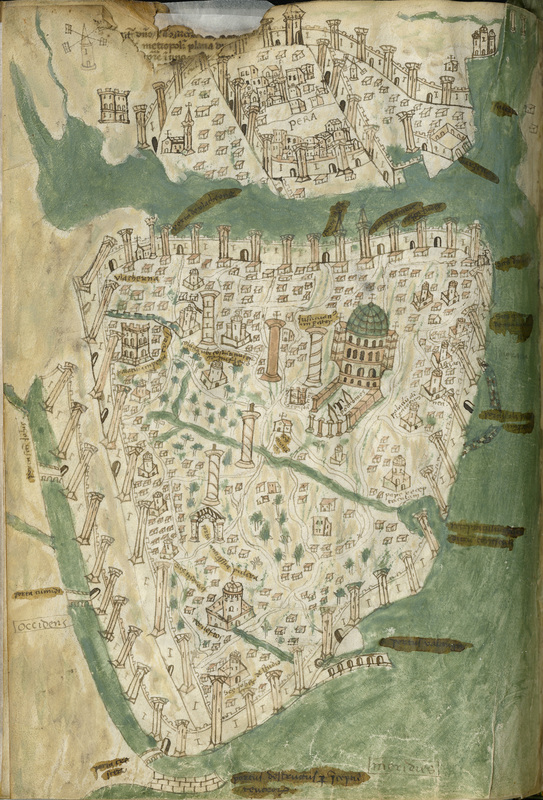
Translating Homer into Print

Homer in the Vernacular

